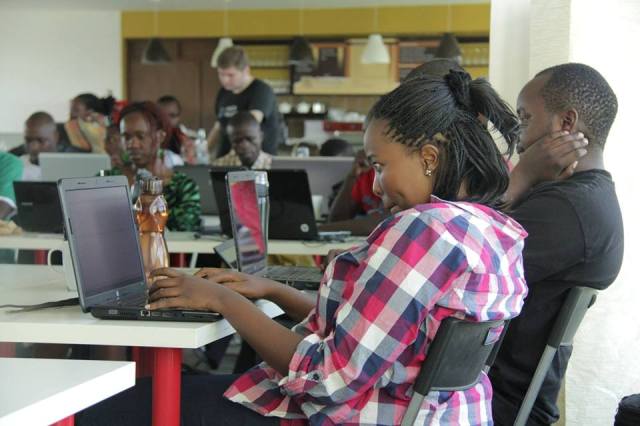At the far right corner of one of Nairobi’s co-working space seats a classroom that can barely fit 15 students and a tutor. But don’t be fooled by this space at Nairobi Garage on Ngong Road. This is where Moringa School is churning young world-class developers every four months.
This month, Moringa School will be admitting 12 students to the code school from 200 applicants who applied to join the third cohort since the School opened last October.
The school has emerged as a top feeder of skilled developers to Kenya’s rapidly expanding tech community and top ICT companies, a fact co-founder Audrey Cheng, however, admits is just a drop in the ocean.
“The demand for quality, talented developers in Kenya is very high. We went to a couple of universities and learned how they teach Computer Science and we saw it is very theoretical. We are just scratching the surface with our students,” says Cheng.
Cheng, and co-founder, Frank Tamre, also talked to a number of enterprises who not only confirmed new graduates lack necessary developer skills but also need to sharpen problem-solving and critical thinking skills.
“For a majority of them (graduates), inability to put to practice what they study in school and Lack of Practical skills
Armed with this information, Frank and Cheng set out to set up a school where young developers learn and perfect different programming languages including Javascript, HTML, CSS, Ruby on Rails, Android L, source control and UI & UX design. Presentation skills and business fundamentals are additional modules to ensure the learners are well-rounded.
Moringa started small looking for just five students in October 2014. They got 120 applications, from High School graduates to Comp Science graduates, selecting just 10 students from the process.
“We filtered through applications looking for individuals that fit our pre-interview scale and then interviewed the candidates based on their communication skills, maths, logic, coding skills, and personality,” says Cheng.
The school is modeled along the San-Francisco based Hack Reactor, a leading code school that occasionally sends tutors to mentor students at Moringa. The code boot camps model – where students go through an accelerated developer program to improve their skills – has spread across the globe with 6,000 students graduating in 2014 in the US alone. According to SwitchUp, a course rating website, 59 percent of students reported a salary increase after the code course, averaging $23,000 annually.
Ian Munene, a Comp Science graduate and a resident hacker at Moringa, confirms the chances of securing a job with just campus qualifications are slim to nil.
“It was tough because most of the jobs required two years plus working experience and the programming once needed people with really advanced coding techniques. I was actually rejected twice in interviews I had attended,” says Munene.
Moringa School has absorbed some of its graduates, like Munene, as in-house developers and assistant tutors.
“We go through the previous day’s problems after which I give them the problem for the day. My colleague and I also instruct Junior Moringa School (beginners) class in the evenings. We also interview students who want to join the school,” Munene explains his role at Moringa.
Frank expounds how Moringa is not just about developing coders for a ready market, but the school is also training students as young as 14 years.
“Junior Moringa School offers an opportunity for those interested in pursuing a programming career but have no clue where to start. Junior Moringa School introduces you to the basics of programming.
The practical approach of the School requires students to solve problems by building apps and software which they can showcase to potential employers.
“I already have a portfolio with several projects to my name which is invaluable. I have definitely gained more confidence in my approach to the job market,” says Munene.



































